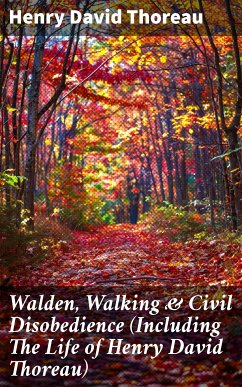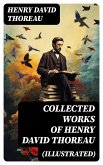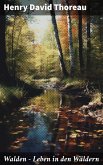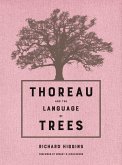In "Walden, Walking & Civil Disobedience," Henry David Thoreau presents a profound meditation on nature, self-reliance, and the critique of societal norms. The collection's centerpiece, "Walden," recounts Thoreau's two-year stint living in a cabin beside Walden Pond, where he explores themes of simple living in natural surroundings, the importance of solitude, and the deeper meaning of life away from the constraints of modern civilization. Coupled with his essays on transcendentalist philosophy and the practice of civil disobedience, these writings reflect Thoreau's eloquent and poetic prose style, steeped in rich imagery and philosophical depth. Contextually, this work emerged during a period of American romanticism and reform, presenting a counter-narrative to industrialization and rampant materialism of the 19th century. Thoreau, an ardent advocate for environmental conservation and social justice, drew inspiration from his experiences in nature and his philosophical conversations with contemporaries like Ralph Waldo Emerson. His impassioned stance against slavery and governmental injustice further catalyzed his writings in "Civil Disobedience," where he underscores the moral imperative of resisting unjust laws. Thoreau's life in Concord, Massachusetts, marked by his affinity for solitude and contemplation, fundamentally shaped his critical worldview. This essential collection is indispensable for readers seeking philosophical insights and profound commentary on personal autonomy, ethics, and our relationship with nature. Thoreau's enduring relevance, coupled with his eloquent prose, offers both an intellectual challenge and an invitation to reflect on one's role within the larger tapestry of life. Whether you are a long-time admirer of Thoreau or a newcomer to his thought, this work will undoubtedly enrich your understanding of not only Thoreau's philosophies but also the human experience itself.
Dieser Download kann aus rechtlichen Gründen nur mit Rechnungsadresse in A, B, BG, CY, CZ, D, DK, EW, E, FIN, F, GR, H, IRL, I, LT, L, LR, M, NL, PL, P, R, S, SLO, SK ausgeliefert werden.









